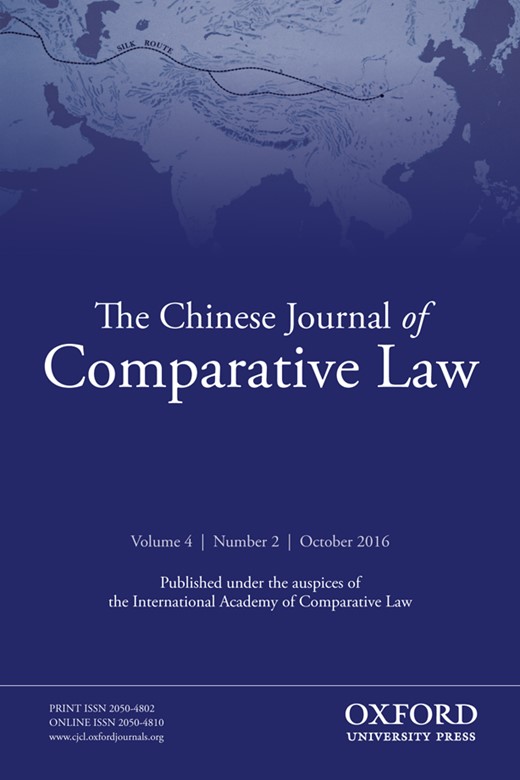-
Views
-
Cite
Cite
Steven J.W. Geroe, Plural Institutionalism and the Integration of Specialist Expertise in the Chinese Renewable Energy Consultative Drafting Process, The Chinese Journal of Comparative Law, Volume 4, Issue 2, October 2016, Pages 205–228, https://doi.org/10.1093/cjcl/cxw006
Close - Share Icon Share
China’s renewable energy institutions are contributing to regulatory development, through the utilization of specialist expertise in the consultative drafting process. While the Chinese legislative system remains instrumentalist at the level of the unitary, centralized State, a significant degree of pluralism has developed in the specialized institutions supporting the legislative and executive branches of the government. Gu Xin’s formulation of plural institutionalism is used as a framework for the analysis of the increasingly sophisticated and diverse institutions and inter-relationships involved. Interviews conducted in these institutions explore such pluralist regulatory development, through case studies of consultative drafting processes and institutional synergies. China’s scale-up of renewable energy supports its environmental and climate change, energy security, and economic modernization objectives. This action reflects the Chinese government’s scientific development concept and explains the involvement in the renewable energy consultative drafting process of a broad range of institutions. The view that the integration of heterodox views into the legislative process can enhance the scientific validity of outcomes also supports China’s pluralistic institutional approach. Limits on pluralism include centralized decision making through the State planning process and regulatory requirements regarding the registration and supervision of institutions. Nonetheless, the participation of Chinese renewable energy institutions in the consultative drafting process reflects a continuing emphasis on the value of more independent institutions and on the utilization of specialist expertise in institutions under the National People’s Congress and State Council. Thus, plural institutionalism is a key feature of the consultative drafting processes that have been central to renewable energy-related regulatory development in China.



